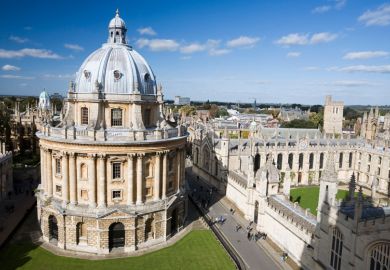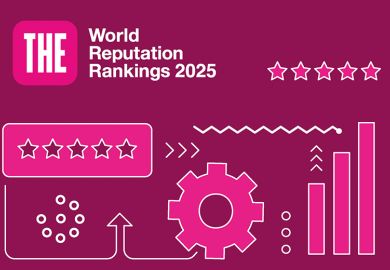Browse the full list of the world's top-ranked universities in 2016-2017
A commitment to global engagement has always been at the heart of everything we do at University College London. But since the referendum on 23 June, when the UK voted by a narrow but clear margin to leave the European Union, our commitment to partner with those from beyond these shores has, if anything, intensified in a way that has reinforced my pride in being part of such an inclusive and open institution.
The outcome of the referendum has presented us with a number of challenges, many of which are still to be resolved. However, the groundswell of support for our global outlook from our community and beyond has only reaffirmed my view that we have to maintain that openness to people and ideas from around the world.
Clearly many of the issues highlighted by the referendum are especially live for an institution such as ours. Along with all those highlighted in this year’s Times Higher Education World University Rankings, we are committed internationalists, but our commitment is particularly long-standing – thinking and acting globally has been part of UCL’s history and culture since we were founded in 1826.
We were the first university in England to open up university education to those previously excluded from it and the first to introduce modern language departments. UCL is closely associated with Jeremy Bentham, who is credited with coining the word “international”. The Choshu Five, the first Japanese citizens to travel abroad, came to UCL in 1863, before returning home several years later and becoming known as the fathers and founders of modern Japan. A total of 13 of our 29 Nobel laureates were born outside the UK.
Today, we are a global university in what is probably the world’s most global city. We have more international students than any other UK university, including more than 4,000 from the EU. More than 20 per cent of our staff are from the EU. We are also one of the top performing universities in the EU’s Horizon 2020 programme for research and innovation.
All of our major institutional activities are reflexively international in their outlook. For instance, we have just launched a global campaign to raise funding for projects that will transform the lives of individuals and communities worldwide – ranging from dementia and cancer research to student experience and support.
So for reasons that had as much to do with our core identity as my own sense of how our sector could best continue to thrive, I supported and campaigned for the UK to remain within the EU, and was disappointed by the outcome. Of course, I respect the democratic process, and we will work with the government to make the new reality work for the country, for our sector and for UCL. But it will take renewed commitment to our global engagement strategy, and redoubled efforts to reach out.
Claim a free copy of the World University Rankings 2016-2017 digital supplement
The new prime minister, Theresa May, has declared that “Brexit means Brexit, and we are going to make a success of it”. It is in everyone’s interest to see our world-leading universities continue to prosper and not fall behind. I believe that the government acknowledges our strength in higher education, and we are working with Jo Johnson, minister for universities and science, to ensure the continued success of our sector.
To achieve this, we will need government in its entirety to appreciate the conditions that make our universities attractive to the brightest academics and students worldwide. The institutions highlighted in the THE World University Rankings operate in a range of jurisdictions but all are committed to internationalisation, and the UK is currently one of the most attractive nations in which to study or conduct research. Freedom of movement and ease of international collaboration has enabled talented students and researchers from Europe and beyond to come here. It is in no one’s interest to obstruct this healthy environment.
In our submission to the House of Commons Science and Technology Select Committee inquiry into the implications of leaving the EU, we set out the need for a clear political will to ensure that the UK continues to be a global leader in research and leading recruiter of global talent, with the continued free movement of EU students and researchers the most pressing concern.
I have been enormously heartened by the response to the communications plan we have enacted at UCL since the referendum.
Within hours of the result, we had taken steps to reassure our EU staff and students about their importance to our university and within days we had joined appeals to government to urgently clarify the status of our people worried about their futures. The initial responses we received to the message of support and reassurance we sent across our communications channels to staff, students, alumni, prospective students, international partners and all those with a stake in UCL was unfailingly positive. Individuals who had been wavering about whether to apply reaffirmed their commitment, on the basis that they believed in us, because we believed in them.
Academic activity has from its inception been founded on cross-border collaboration, and trust and collegiality between academic partners have generally survived periods of intense pressure from the outside. This makes me optimistic for the future health of our universities, but it is our job to persuade those outside the academy that to continue to succeed we need to be free to recruit and retain the most talented minds, regardless of nationality.
Michael Arthur
President, University College London
POSTSCRIPT:
Print headline: Keep our doors open
Register to continue
Why register?
- Registration is free and only takes a moment
- Once registered, you can read 3 articles a month
- Sign up for our newsletter
Subscribe
Or subscribe for unlimited access to:
- Unlimited access to news, views, insights & reviews
- Digital editions
- Digital access to THE’s university and college rankings analysis
Already registered or a current subscriber? Login








